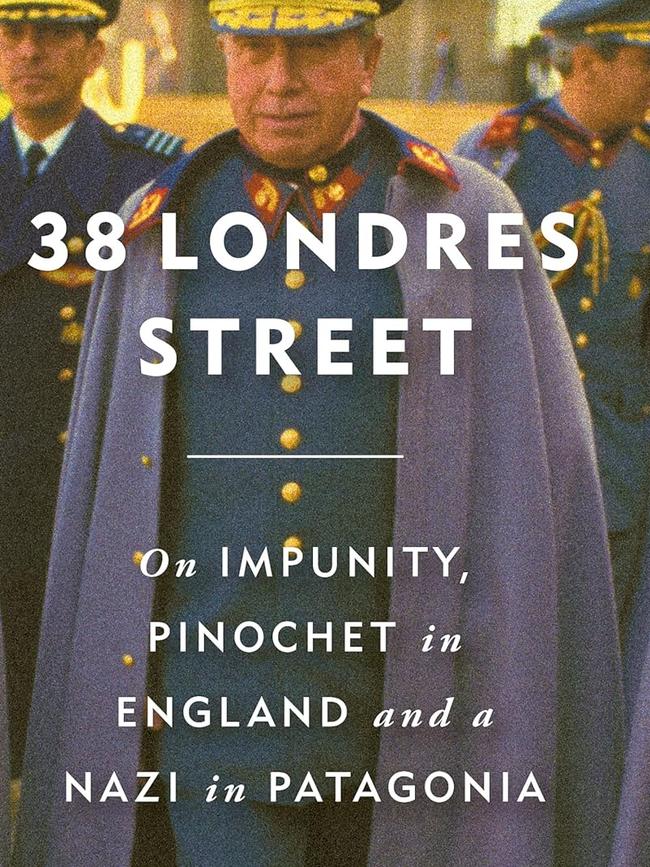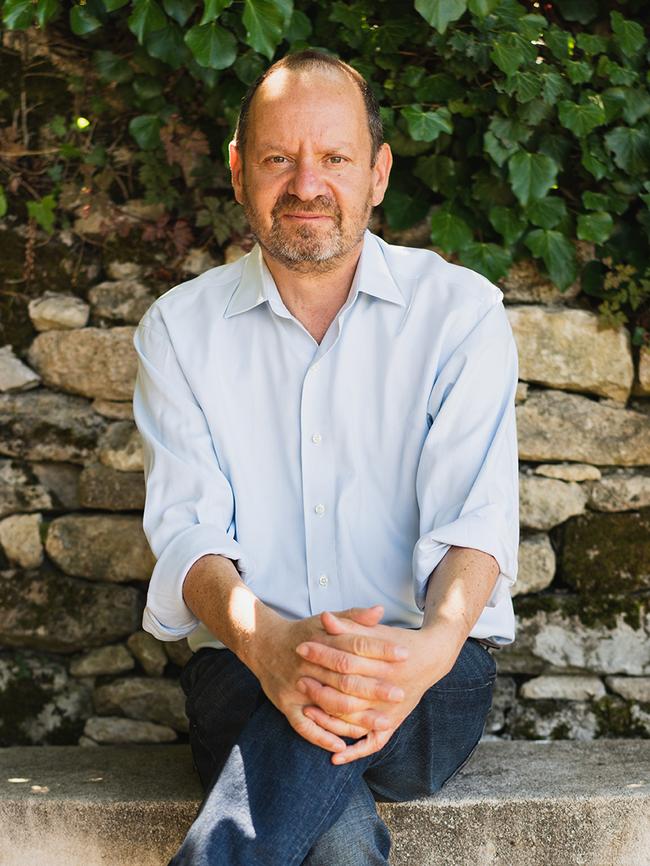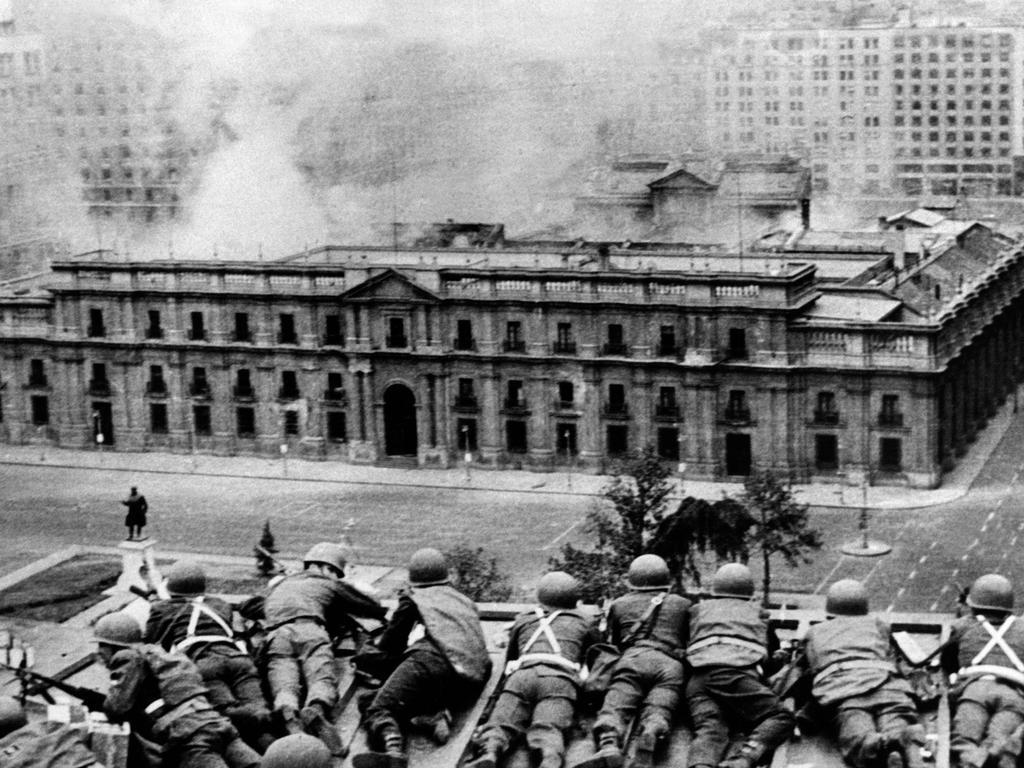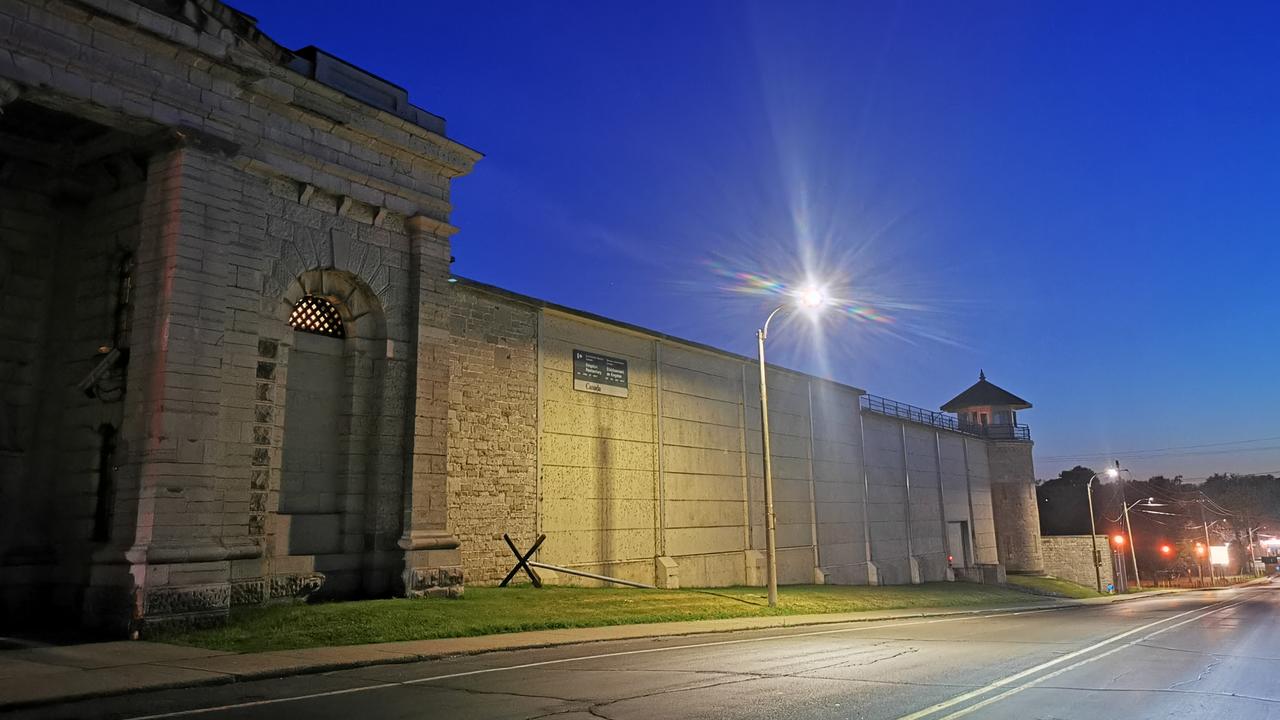Philippe Sands explores Nazi-Pinochet link in gripping new book ‘38 Londres Street’
Author and lawyer Philippe Sands was asked to represent the Chilean dictator in court. His wife said she’d leave him if he took the gig.

It’s five years since I reviewed Philippe Sands’s The Ratline but it stays in the mind as few books can. It’s the story of Otto von Wächter, a Nazi who rose to become the Governor of Krakow and was responsible for the extermination of thousands of Jews and Poles. Sands has now written a book about Augusto Pinochet, former president of Chile; and another Nazi officer, Walther Rauff, who was responsible for the use of gas vans and tried to escape justice after the Second World War, by crossing the ocean to Chile.
Sands is as a human rights lawyer and a Harvard professor of law. As a legal cab off the rank, he was offered the gig to appear for Pinochet. His wife said okay but she would leave him if he did. So he didn’t. He wrote this book, 38 Londres Street, instead, and he will talk about it at the Sydney Writers Festival, this week.
Sands tells me that another reason he’s coming to Australia is to see his youngest daughter: “She’s working at a bakery in Brunswick!”
He is speaking from London, where he still works as a barrister. Sands appeared for Palestine before the international court of Justice and for Australia in the whaling dispute with Japan.
He’s Jewish, he’s half-French and, on Zoom, has that incandescent quality, a step away from anger, a step away from hilarity.
He said he didn’t know what he’d find when he started researching his Pinochet book, “but I mean, I’m a barrister so you have this sixth sense, this litigator’s sense, that there’s something there and you just follow your instincts and I was just amazed by what I uncovered”.
The saga of how Pinochet became the subject of an attempt to extradite him to Spain so that he might face justice, and of the numerous attempts to claim he had impunity as a head of state, have perhaps retreated from the collective consciousness.
He was arrested in 1998, and spent close to two years in Britain, with former prime minister Margaret Thatcher telling Tony Blair that his Home Secretary must release Pinochet, and Blair (who was under pressure from the conservative Spanish prime minister) saying the decision was entirely that of Jack Straw.

Straw loathed Pinochet but was under great pressure to take cognisance of the doctors who said he was not in a fit state to plead. Straw comes across very sympathetically and you get the strongest sense of the majesty of the law. At one point, late in the piece, he says to Sands: “What I should have said…”
But then his words trail off into the void.
During his “captivity” in London, Pinochet watched Star Wars films and read about Napoleon. “He had a sort of sense that if you somehow connected yourself to the world of literature, you would improve your public image,” Sands says. “And I found this quite entertaining. I mean, as you’ve seen, it’s a dark book, but I’m in the British style of irony and humour and Monty Python, and so I’ve got to inject some humour into the whole thing, and it’s just a way of relieving the pressure.”

But isn’t there the danger, I ask, that when you’re entertaining about Pinochet, that this rather manifestly evil character will become an old dear?
“I’ve just done a week’s book tour in Chile with the Spanish edition of the book, which was very intense. And the book has gone straight onto the bestseller list in Chile, which has never happened with any of my books ever before. And I think that people understood what I was doing,” he says.
In fact, Sands aims for an extraordinary understanding of his characters however steeped in blood they may be. It is as if they exist primarily in his imagination and the more you read him and the more you talk to him, the more you realise that refusing to accept the wall between facts and fancy is central to the power of his work.
“I never refer to these people as monsters. I mean, they did monstrous things. There’s no question of how appalling the things they did were. But we know in life that people are complex. That’s the reality.”
Sands thinks the people who swallowed the medical reports had not talked to those who saw Pinochet day after day, like the doctor from Scotland Yard, “a wonderful person, Peter Dean”.
He also loves the fact that the man who tracked down Rauff was a journalist, William Bemister, with Australian connections. Bemister worked for the ABC and Ten before becoming an independent producer. His first documentary, as a writer, was The Confessions of Ronald Biggs (1978), about the fugitive train robber then living in Brazil.
Sands sends through a video of Bennister’s encounter on the streets of Chile with Rauff, and it is extraordinary. Although Rauff is talking in English, you get the strongest sense of the Nazi who gassed thousands in his vans of death.
Sands is very happy though to be seen as a writer who shades this kind of truth with the shadows of fiction And he volunteers an influence that may surprise some people.
“You have to understand that I’m very influenced in my writing by the guy who was my next door neighbour for 20 years, John le Carre.
“I had a big role in all of le Carre’s novels for 20 years, because he hated lawyers, and in every one of his novels there is a disgusting lawyer, and my job with his books was to make sure that the disgusting lawyer was presented in an authentic manner, spoke like a lawyer, dressed like a lawyer.”
It’s interesting that 38 Londres Street which is a kind of choric ode to the eminent lawyers it represents should be influenced by a man who despised them.
“We spent a lot of time in the local pub talking and what I learnt from him was a very important lesson. Do not impose your conclusions on the reader. Your job is to tell a story. The reader is intelligent, and they will form their own view, and it might be your view, or it might be a different view, but they will have their own interpretation. And what they like in a writer like le Carre, as he would put it, is that you lay out the material in a way that allows them to try to work it out before you do the big reveal.”
And the Pinochet book is true to le Carre’s advice. Sands takes a group of lawyers who might appear to be minor characters (though they include Tom Bingham, as well as Lord Hoffman who caused problems because of his connection with Amnesty International) and he presents them as potential oracles, every nuance of their verbal arguments lit and underlined.
This dramatic yarn spinning is related in turn to the way Bruce Chatwin’s In Patagonia is a fiction fused with truth. Half of it is made up, half of it is harrowingly imagined (and somewhere in the centre of In Patagonia, there is the figure of Walter Rauff, the man who killed thousands with his gas trucks of slaughter.)
There is a deep and dark imaginative power in 38 Londres Street. It is in its way a recreation of the horror that stalks the Earth when justice and mercy are deranged and dethroned. But this is a book which will captivate a multitude of readers. The way it pivots on the conflicting wisdoms of the law is majestic and terrifying and its thriller-like architecture will fascinate a mind that can cotton on to the drama of toppling and terrifying structures.
It is an utterly remarkable book by a man who has made the mantras of the law his way of shaping a story of the worst things in the world which yet retain a human face.
I asked Philippe Sands if he is an actor manque.
“Good God no. You never tell a judge what to think. You allow him to grasp an implication. A theatre director manque perhaps.”
,- Peter Craven is a culture critic.
About the author

Philippe Sands is professor of law at University College London and visiting professor of law at Harvard University. He is a practising barrister, appears as counsel before the International Court of Justice, and sits as an international arbitrator. His books include East West Street (2016), The Ratline (2020),
The Last Colony (2022) and 38 Londres
Street: On Impunity, Pinochet
in England and a Nazi
in Patagonia (2025).
He will be a guest of
the Sydney Writers’
Festival.






To join the conversation, please log in. Don't have an account? Register
Join the conversation, you are commenting as Logout